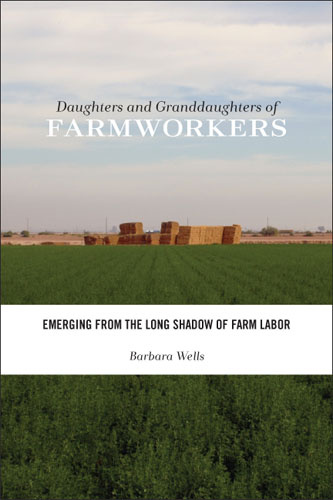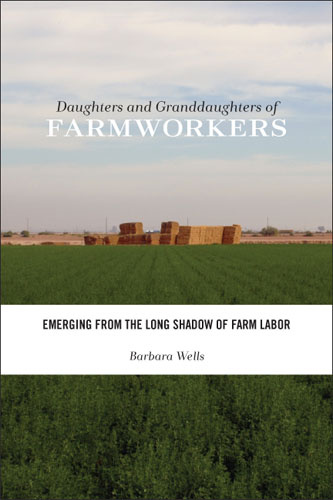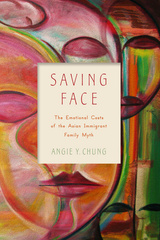
Daughters and Granddaughters of Farmworkers
Emerging from the Long Shadow of Farm Labor
In Daughters and Granddaughters of Farmworkers, Barbara Wells examines the work and family lives of Mexican American women in a community near the U.S.-Mexican border in California’s Imperial County. Decades earlier, their Mexican parents and grandparents had made the momentous decision to migrate to the United States as farmworkers. This book explores how that decision has worked out for these second- and third-generation Mexican Americans.
Wells provides stories of the struggles, triumphs, and everyday experiences of these women. She analyzes their narratives on a broad canvas that includes the social structures that create the barriers, constraints, and opportunities that have shaped their lives. The women have constructed far more settled lives than the immigrant generation that followed the crops, but many struggle to provide adequately for their families.
These women aspire to achieve the middle-class lives of the American Dream. But upward mobility is an elusive goal. The realities of life in a rural, agricultural border community strictly limit social mobility for these descendants of immigrant farm laborers. Reliance on family networks is a vital strategy for meeting the economic challenges they encounter. Wells illustrates clearly the ways in which the “long shadow” of farm work continues to permeate the lives and prospects of these women and their families.
This important, well-written, and accessible book adds substantially to our knowledge of a group that is much misunderstood, sometimes even maligned, and little-studied: American born women who are the children of Mexican immigrant farm workers.
This timely and compelling book provides a long over-due examination of the legacy of immigrant conditions on latter generations and is a must-read for anyone who cares about immigration policy.
Wells provides a comprehensive analysis ofthe lived experiences of daughters and granddaughters of Mexican immigrant farm workers in Imperial County, California. This is an important contribution to the study of Mexican American family lives and a great addition to the field of gender and women's studies. Highly recommended.
This important, well-written, and accessible book adds substantially to our knowledge of a group that is much misunderstood, sometimes even maligned, and little-studied: American born women who are the children of Mexican immigrant farm workers.
This timely and compelling book provides a long over-due examination of the legacy of immigrant conditions on latter generations and is a must-read for anyone who cares about immigration policy.
Wells provides a comprehensive analysis ofthe lived experiences of daughters and granddaughters of Mexican immigrant farm workers in Imperial County, California. This is an important contribution to the study of Mexican American family lives and a great addition to the field of gender and women's studies. Highly recommended.
BARBARA WELLS is a professor of sociology and Vice President and Dean of Maryville College. She is a coauthor of the award-winning textbook Diversity in Families.
Introduction
1. The Structure of Agriculture and the Organization of Farm Labor
2. Farmworker Origins
3. Life in a Border Community
4. Negotiating Work and Family
5. The Legacy of Farm Labor
6. Surviving Now and Building a Better Life for Later
7. Why Do They Stay?
Conclusion
Methodological Appendix
Notes
References
Index









